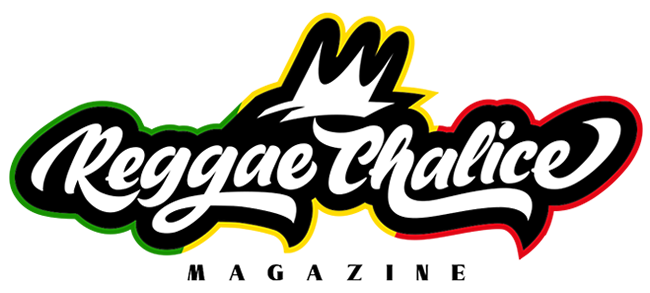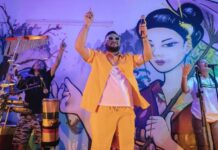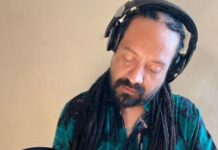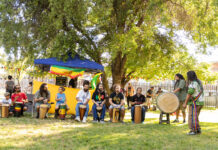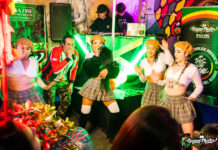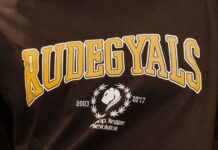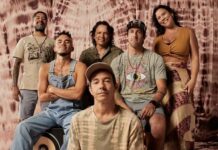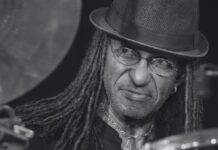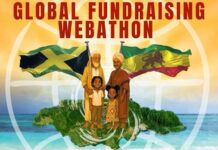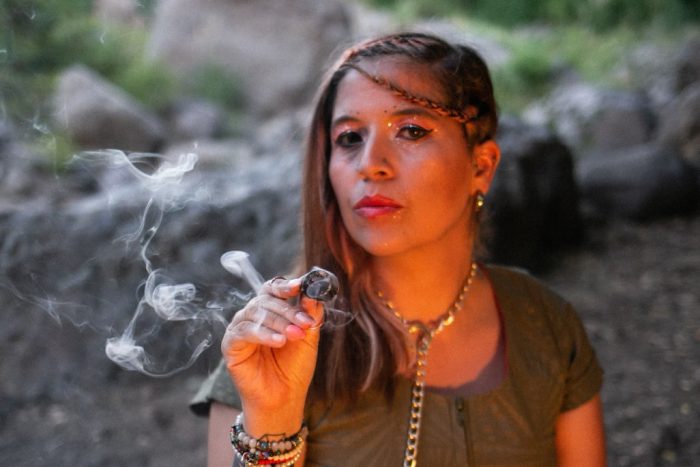Versatility is a word that could well portray Bethany Lopez. It's just that before getting on stage and being one of the main female voices of ska and reggae in Chile, Its history has several chapters that were building its present that has it at the gates releasing his third album and in the prelude to a tour in which he will perform in Canada for the first time.
He studied graphic design and audiovisual communication, He also edited the first reggae magazine in Chile on coated paper in the middle of the first decade of the 2000, She has also just graduated as a dubbing and voice-over actress and, if it wasn't enough, He recently launched a podcast.
In conversation with Reggae Chalice, The Chilean singer addressed these facets of her life and how things turned out to go from being behind the scenes to getting on stage and being the focus of attention..
“I have always liked to sing”, assured, and his beginnings in music date back to school, where he had a group with his companions called “Dog Gargajo”, band with which they did three covers and had some presentations, although the project was left without further development.
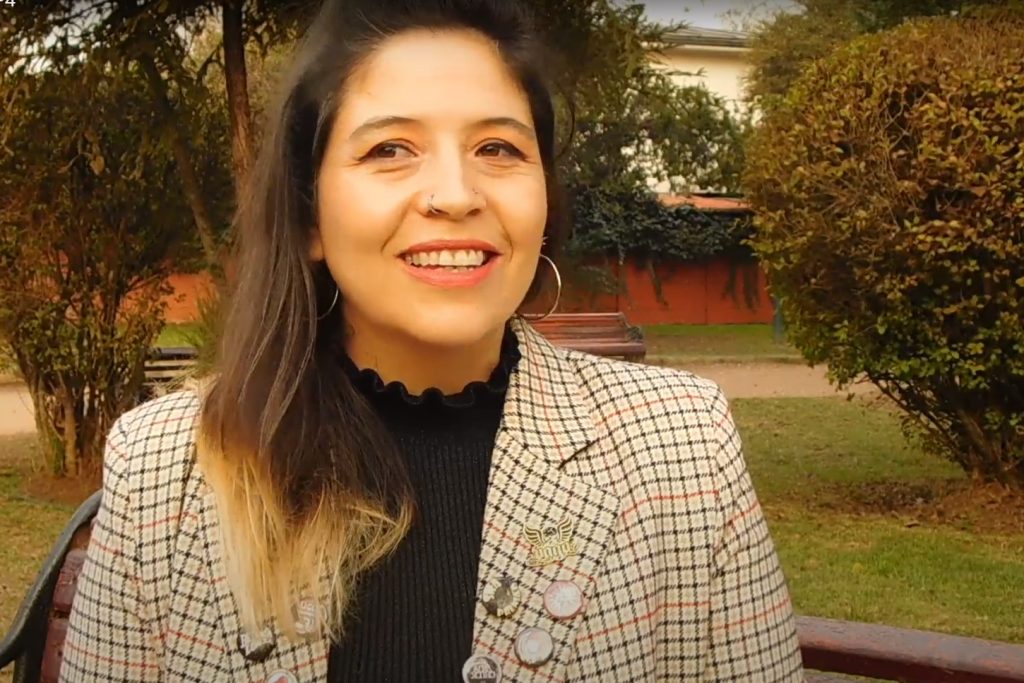
“Colors to the Ghetto”, pioneer magazine
From there his musical path was stand by, since he studied graphic design, but in the middle of that race another of his veins emerged: the communication.
“When I was studying design they showed us a magazine called Colors de Benetton that caught my attention. It showed many colors, ethnicities, places, I liked. At that time I was very involved with Rastafarism and that magazine was a reference to begin to portray the entire world of reggae and Rastafari.”, Betania commented on the inspiration to create Colors to the Ghetto, the first Chilean magazine dedicated to reggae and black culture.

“We started interviewing the bands of the time, I wrote about medicinal plants, We had a section where we invited someone from the scene to talk about 3 discos. We had a photo section. This is how it was developing Colors to the Ghetto. The first issue came out around 2004 o 2005″, he added.
further, considered as a true “feat” having published several issues of the magazine, with few resources, but with a great desire to communicate and show the scene.
“It was a great feat, I'm glad I did something like that.. I'm sorry I didn't let you know when it was finished., I think I should have done that differently., because many people later asked me about the magazine”, remembered.
Magazine, “a bridge” to his musical career
The experience of this publication, important at the time for the reggae scene, gave him the opportunity to get closer to musicians and, somehow, It allowed him to boost his current musical career.
“I feel that (Magazine) It was an important milestone.. I met many people, many musicians, I knew the music scene from behind, from below, how it worked and there I could understand how to approach music. It was a bridge, because as a result of the magazine I was able to start making music, because the same musicians I was interviewing helped me start making music”, said the singer.
How he doesn't play any instrument, Betania saw the possibility of making a song as distant, however he remembered the singer Be kind for their willingness to help her and teach her how to carry out the creative process.
“At that time I thought: How do I make a song? Once I-Mosa told me it was super easy and invited me to his studio and helped me. He told me to choose a track he had and then write something. After that he told me: 'Yes, grabalo’. He guided me and helped me and in a very didactic way I realized that making a song was not that difficult.”, remembered.
“I am eternally grateful to him, because not everyone helped you. It was a super masculine scene and the Meuse caught me and that was crucial, because I could tangibly see that it was not difficult”, stressed.
His albums
After this help he received, he began to record his first EP, although the final impulse to jump into the pool was his victory in the Schools of Rock contest, which gave him the opportunity to record a song in a recording studio.
That was the kickoff of his first production, The last letter (2014), a ska album, a new scene for her who was used to and linked to reggae.
His second studio album was Perverse Love and Dub (2018), a job “more experimental” -in his own words-, with a sound very different from the previous one.
“That album was a little more experimental, because there is a lot of reggae. There are five songs and five dub versions. There are more effects of delay, reverb, flirting with electronics, that's what I wanted. I wanted it to be an ambient album, in the sense that it wouldn't bother you, being able to listen to it while you do things, cook, study, and not be so attentive, like it accompanies you in your things. The first album is superska, the second wanted it to be more environmental”, asserted.
River Current, a little of everything
His current and soon-to-be-released musical adventure is River Current, a production that has eight tracks and in which he demonstrates all his accumulated experience, with a greater mix of styles and that shows its more emotional side.
“It's a very emotional album., talks about love, of heartbreak, to want, die. There is a song that talks about kambó –an alternative medicine-, There is another one that talks about pets that I wrote to my dog - 'Gala'- but thinking of all the people who love their animals, that feels like family, that accompany them”, manifested.
further, “musically there are songs that are like indie reggae, hay un early reggae, rocksteady, will. There is a song that is like a Colombian cumbia, so musically it comes from a little bit of everything, although with a lot of reggae. All songs were written by me, salvo “Rogue”, which is a song by Rita Góngora, of the New Wave. I knew that song and I loved it, we did a ska version, We played it live a long time ago and I felt this debt to leave it on record.”, stressed.
He assured that “pronto” will begin releasing the singles and “In October I hope to release the full album on all platforms and the live launch will be in November”.
In fact, The release of their first single is scheduled for 10 August on their digital platforms.
Rotates through Canada
A few weeks ago Betania López premiered a song with Canadian artist Alex Paquette –”Not pass”-, a collaboration that brought with it a great opportunity: an invitation to the North American country to perform a seven-date tour of several cities, that will extend between 29 of July and 24 of August.
“Now I'm going to Canada for the first time.. I mean, first time that I am going to perform in a country that is not Latin, compared to, I believe, non-Spanish speaking public. I do not know, I think it will still be varied, because there is still a large Chilean colony”, commented.
“We are going to play in different parts. A Montreal, in places that are close to Montreal and one weekend we are going to Toronto. I'll see what happens, to know the scene, to the public. Let's see how things move there”.
The singer stressed that “I didn't plan to go to Canada this year., The only thing I had budgeted was to release my album and launch it.. And in between I get a tour. Like they knocked on my door and told me: ‘mira, here is a tour'. Apart from opening doors, You can meet people and I am open to what has to happen. It's half a blessing”.
“Communicating is part of me”
Another of his side projects is the podcast “Rhythm of Fire”, available on Spotify and on Bethany networks, which satisfies one of your needs: the communication.
“I think it's part of me to communicate, I think that's why I started the magazine. (Colors to the Ghetto). At that time I didn't realize, but now yes, what I like to communicate. I like to network, I like to connect, I like to send information. I do it like this with my friends too., it's part of me”, manifested.
After about a month of testing, this year with a friend, Nico Dubgital, was launched with this project.
“We talk about different things, different everyday topics. The idea is to accompany people while they are driving, cooking, or whatever, it does not matter. And we talk everyday things, of life itself. We don't do a class of anything, we just talk and play music”, he concluded.
